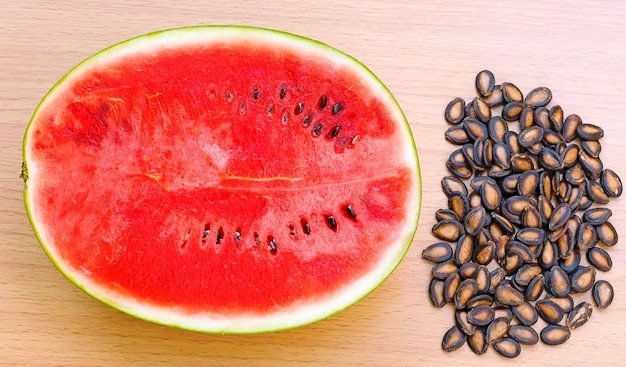Introduction
Peaches, or “aadu” in many parts of the world, are a delicious and nutritious fruit delighted in by millions. However, like any food, peaches can cause side effects and allergic reactions in certain individuals. Understanding these potential issues is crucial for maintaining great health and preventing serious complications.

Nutritional Benefits of Peaches
Before diving into the less pleasant aspects, it’s important to acknowledge the nutritional benefits of peaches. These juicy fruits are packed with essential vitamins and minerals that contribute to overall health.
Vitamins and Minerals
Peaches are rich in vitamins A, C, E, and K. They also contain significant amounts of potassium, magnesium, and dietary fiber. These nutrients support immune function, skin health, and digestive health, making peaches a valuable addition to a balanced diet.
Antioxidant Properties
Peaches are loaded with antioxidants like beta-carotene and lutein. These mixtures assist with combatting oxidative pressure in the body, potentially reducing the risk of chronic diseases and promoting healthy aging.
Common Side Effects of Peaches
Despite their benefits, peaches can cause several side effects, particularly when consumed in large quantities or by sensitive individuals.
Gastrointestinal Issues
Certain individuals may experience gastrointestinal discomfort after eating peaches. This can include symptoms like bloating, gas, and diarrhea. These reactions are often because of the high fiber content in peaches, which can be hard for certain individuals to digest.
Skin Reactions
Handling or eating peaches can sometimes cause skin irritation or rashes. This is usually because of the peach fluff, which can be an irritant to sensitive skin.

Understanding Peach Allergies
Peach allergies happen when the immune framework mistakenly identifies proteins in peaches as harmful substances and mounts a safeguard against them.
What is a Peach Allergy?
A peach allergy is an adverse immune reaction triggered by proteins tracked down in peaches. This can lead to a variety of symptoms, ranging from mild to severe.
Symptoms of Peach Allergies
Common symptoms of peach allergies include itching or swelling of the mouth, lips, and throat, skin reactions, for example, hives or eczema, gastrointestinal issues like nausea or vomiting, and respiratory issues, for example, wheezing or windedness.
Oral Allergy Syndrome (OAS)
Oral Allergy Syndrome is a specific sort of food allergy that often involves fruits like peaches.
Connection Between Peach Allergies and OAS
OAS happens when certain proteins in fruits and vegetables look like dust proteins, leading to an allergic reaction in the mouth and throat. Individuals with hay fever are bound to develop OAS.
Common Symptoms of OAS
Symptoms of OAS typically include itching or burning sensations in the mouth, throat, and on the lips. These symptoms usually happen soon after consuming raw peaches and can sometimes reach out to other fruits with similar proteins.
Cross-Reactivity with Other Fruits
If you’re allergic to peaches, you might also react to other fruits because of similar protein structures.
Fruits Similar to Peaches
Fruits that often cross-react with peach allergies include apples, plums, cherries, apricots, and nectarines. It’s important to know about these potential triggers.

Potential Cross-Reactive Allergens
Cross-reactive allergens are proteins found in different foods that are similar in structure. These proteins can trick the immune framework into reacting as however you’re consuming the allergen you’re allergic to, regardless of whether it’s a different food.
Diagnosing Peach Allergies
Appropriate diagnosis of peach allergies is essential to manage symptoms and avoid reactions.
Skin Prick Test
A skin prick test involves placing a small amount of peach extract on the skin and pricking it with a needle. If a raised knock or reaction happens, it indicates an allergy.
Blood Tests
Blood tests can measure the immune framework’s reaction to peaches by detecting specific antibodies related to allergic reactions.

Elimination Diet
An elimination diet involves removing peaches from your diet and then gradually reintroducing them while monitoring for symptoms. This can help identify if peaches are the culprit behind allergic reactions.
Managing Peach Allergies
Once diagnosed, managing peach allergies involves avoiding openness and being prepared for accidental ingestion.
Avoidance Strategies
The most ideal way to forestall allergic reactions is to avoid peaches and peach-containing items. Be cautious with foods like fruit salads, treats, and even some beauty items that may contain peach extracts.
Reading Food Labels
Always read food labels carefully to check for peach ingredients. Manufacturers are required to list common allergens, so pay special attention to peach or related terms.
Treatment Options for Peach Allergies
If you accidentally consume peaches, several treatment options can assist with managing symptoms.
Antihistamines
Antihistamines can relieve mild allergic symptoms like itching, hives, and sneezing. They are available over-the-counter and by prescription.
Epinephrine Auto-Injectors
For severe allergic reactions, an epinephrine auto-injector (like an EpiPen) is essential. It can quickly switch symptoms of anaphylaxis, a life-threatening allergic reaction, and should be carried at all times by those with severe allergies.
Peach Allergy in Children
Children can also be affected by peach allergies, and their symptoms may differ from adults.
Symptoms in Children
In children, peach allergies often present as skin reactions, like eczema or hives, and gastrointestinal issues like stomach pain or diarrhea. Respiratory symptoms are also possible.

Special Considerations
Managing peach allergies in children requires extra vigilance, especially in school settings. Guarantee that teachers and caregivers are aware of the allergy and ability to answer in case of an allergic reaction.
Living with Peach Allergies
Living with peach allergies can be challenging, however with legitimate management, it’s possible to lead a healthy and active life.
Tips for Daily Life
Plan your meals and snacks ahead of time to avoid accidental openness. Always have safe alternatives available and educate your friends and family about your allergy.
Communicating with Others
Be open about your allergy when eating out or attending social gatherings. Don’t hesitate to ask about ingredients and preparation strategies to guarantee your safety.
When to See a Doctor
It’s important to seek medical advice if you suspect you have a peach allergy.
Severe Reactions
If you experience severe symptoms like difficulty breathing, swelling of the throat, or a rapid drop in blood tension after eating peaches, seek crisis medical attention immediately.
Persistent Symptoms
If you have ongoing mild to moderate symptoms after consuming peaches, plan an appointment with an allergist to seek a legitimate diagnosis and treatment plan.
Preventing Allergic Reactions
Taking proactive advances can significantly decrease the risk of allergic reactions.
Safe Eating Practices
Always wash fruits completely before eating to eliminate potential allergens from the surface. Consider cooking or peeling fruits to lessen the allergenic proteins.
Allergy-Proofing Your Home
Keep peaches and peach-containing items out of your home. Educate family individuals about the allergy and designate areas for safe, sans peach foods.
Conclusion
Peaches, with their sweet and juicy flavor, are darling by many and packed with various health benefits. However, for certain individuals, this seemingly innocent fruit can present significant health risks. Understanding the side effects and potential allergic reactions associated with peaches is essential for anyone who consumes them regularly or is considering introducing them into their diet.
First and foremost, it’s important to recognize that while peaches are a rich wellspring of vitamins, minerals, and antioxidants, they can also cause gastrointestinal discomfort and skin reactions, particularly in individuals with sensitivities. These side effects, while generally mild, can be quite uncomfortable and may hinder individuals from enjoying peaches.
All the more critically, peach allergies can introduce a range of symptoms, from mild oral itching and swelling to severe, potentially life-threatening anaphylaxis. This allergic reaction happens when the immune framework mistakenly identifies proteins in peaches as harmful, triggering a guard reaction. Those with Oral Allergy Syndrome (OAS), a condition linked to hay fever, may experience similar symptoms when consuming peaches because of the cross-reactivity of certain proteins.
Diagnosing a peach allergy typically involves skin prick tests, blood tests, and elimination diets, all of which assist with pinpointing the allergen responsible for the reactions. Once diagnosed, managing a peach allergy requires careful avoidance of peaches and related fruits, diligent reading of food labels, and readiness to utilize medications like antihistamines or epinephrine in case of accidental openness.
Living with a peach allergy demands constant vigilance however is entirely manageable with the right strategies. Avoidance of peaches and cross-reactive fruits, open communication with friends, family, and food service faculty, and carrying crisis medications are key practices. For parents of children with peach allergies, ensuring that caregivers and teachers are informed and prepared is crucial to maintaining the child’s safety.
Despite the challenges, many individuals with peach allergies lead healthy, active lives by adopting these precautionary measures. The importance of consulting with healthcare professionals cannot be overstated; they provide vital help in diagnosing allergies, developing management plans, and offering treatment options.
In conclusion, while peaches offer various health benefits, they also present potential risks for those with sensitivities or allergies. Understanding these risks, recognizing symptoms, and taking proactive advances can assist individuals with safely enjoying a diverse and nutritious diet. If you suspect you have a peach allergy, it is imperative to seek medical advice to guarantee you receive accurate diagnosis and appropriate care. With the right information and preparations, managing peach allergies turns into a seamless part of maintaining overall health and prosperity.
Why Mango is Called Bathroom Fruit
FAQs About Peach Side Effects and Allergies
1. What are the signs of a peach allergy?
Common signs include itching or swelling of the mouth, lips, and throat, skin reactions like hives, gastrointestinal issues like nausea, and respiratory issues like wheezing.
2. Can peach allergies develop later in life?
Indeed, it’s possible for food allergies, including peach allergies, to develop at any age, regardless of whether you have previously eaten peaches without any issues.
3. Are canned peaches safe for those with peach allergies?
Canned peaches can sometimes be less allergenic because of the cooking system, yet at the same it’s not guaranteed. Talk with your doctor before trying canned peaches if you have a peach allergy.
4. How common are peach allergies?
Peach allergies are relatively uncommon compared to other fruit allergies yet can still affect a significant number of individuals, especially those with dust allergies.
5. What should I do if I suspect I have a peach allergy?
If you suspect a peach allergy, avoid eating peaches and talk with an allergist for testing and a legitimate diagnosis. They can provide guidance on managing the allergy and prescribe medications if necessary.



